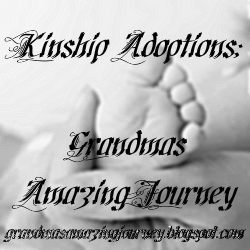Family caregivers experience a range of emotions and stages in their lives when providing care for a loved one. Several different resources cite levels of caregiving, and while some stages differ depending on the source, one fact remains constant – eventually, the caregiving will end.
If you are caring for an elderly relative, the end of your caregiving days may be marked by the death of your loved one. As a caregiver, you have experienced the ups and downs of caregiving – taking time from your own family responsibilities to provide care, perhaps suffering a financial burden and balancing multiple budgets, and realizing your loved one is not who he or she used to be. You have incorporated caring within the possibly already hectic routine of caring for your own family, work, and other responsibilities. It has been hard and stressful. However, your love for the one you cared for made caregiving worth your while.
It is not uncommon for the post-caregiver to feel an utter sense of loss when caregiving ends. You will experience heartache as you mourn the loss of your loved one, but you also find yourself at a crossroad in your life as to what to do now. No more phone calls for assistance. No more visits filled with playing games, dining together or simply reminiscing about good times. When once you felt worry over your loved one, that burden is gone - leaving behind a void in your life. Your grief is compounded as it overlaps the sense of who you are…and who you are going to become once the caregiving phase has ended. Your entire daily routine is filled with broad gaps that once were filled by the physical and emotional acts of caregiving.
You may find it interesting to know some research shows that many caregivers are better situated to deal with the end of their caregiving days than they realize. The family caregiver has lived this role, possibly for quite some time. Caring for an elderly loved one, especially a mother or father, illustrates the essence of life coming full circle. People in these roles have faced and grieved the loss of their loved one long before physical loss occurs. Once caregiving ends, there is a mourning process but there is also a sense of frightening wonder as to where to go from that point.
However, research shows that once caregivers overcome the immediate sense of loss, they find they are organized, financially savvy and highly efficient. Post-caregivers are also able to identify and balance their own wellbeing better than non-caregivers. These qualities may put them heads above the rest in terms of gainful employment after caregiving responsibilities end. Adjusting to new life may be a change, but their experience as caregivers presents a set of tools that help determine their next steps in life.
This is good news and important for family caregivers to know. While it may be sad for a loved one to pass away, post-caregivers can look back and know they accomplished something meaningful, worthwhile, and made a difference in the life of someone else. They realize how they enriched their own lives through the caregiving process and find comfort in the experience. Once this knowledge takes root, these post-caregivers can set forth confidently, and continue making a positive impact…wherever they may choose to go.
References
Marla Berg-Weger, Ph.D., LCSW, Doris McGartland Rubio, Ph.D. & Susan Tebb, Ph.D., LSW and Lisa A. Parnell, MSW (2011).
When caregiving is over: the well being of caregivers of parents of dementia. http://www.caregiver.com/articles/caregiver/when_caregiving_is_over.htm.
Wednesday, December 7, 2011
Subscribe to:
Post Comments (Atom)











0 comments:
Post a Comment